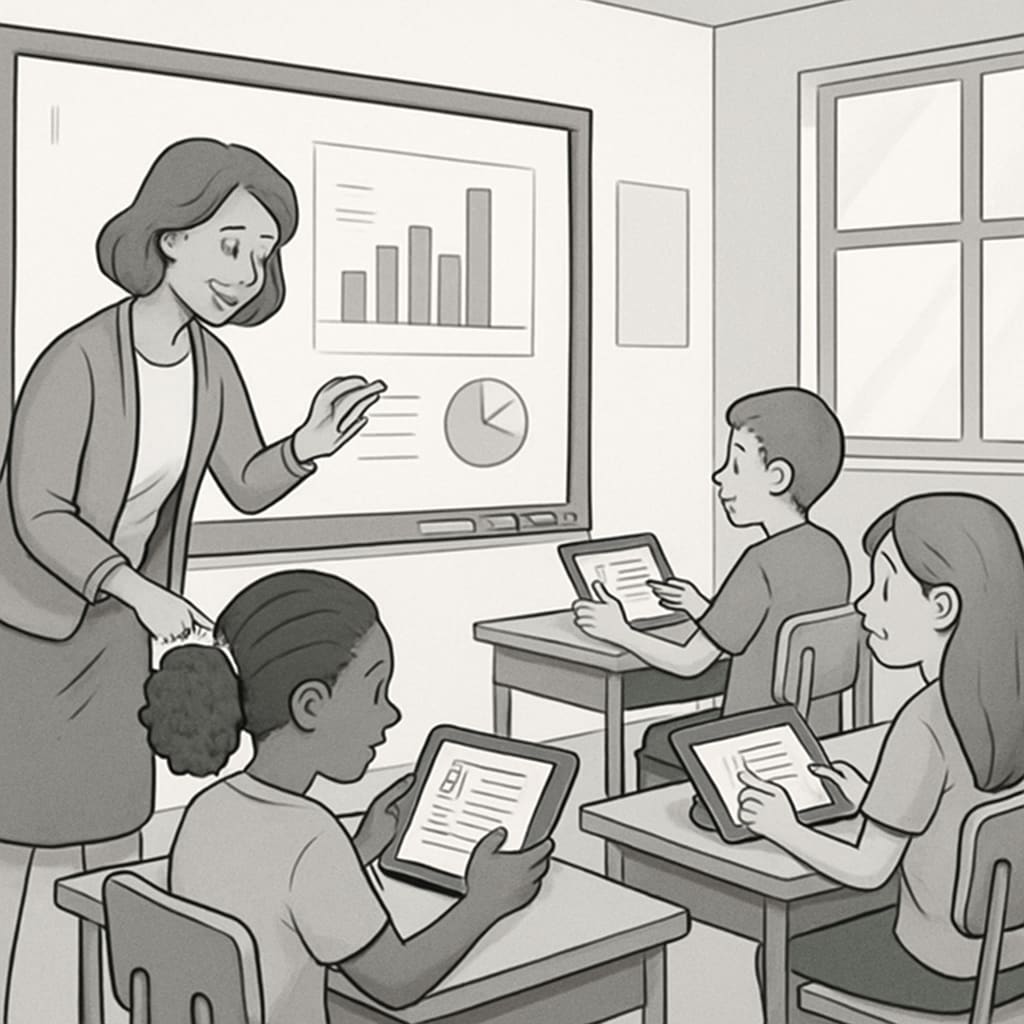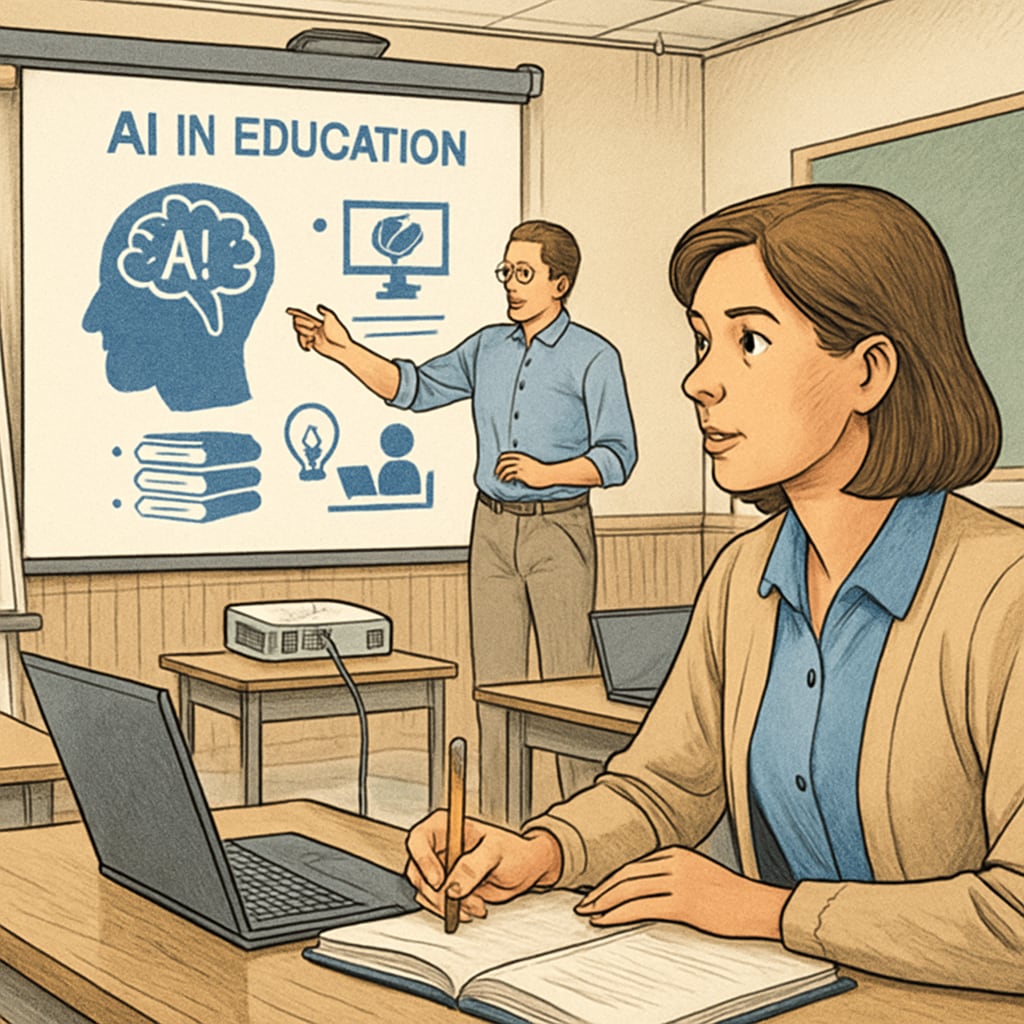Artificial Intelligence (AI) is rapidly transforming the education landscape, prompting significant changes in the roles of educators. This shift is causing a reassessment of teachers’ value, salary structures, and required technical competencies. As AI tools like adaptive learning platforms and automated grading systems take on routine tasks, educators must rethink how to maintain their relevance and negotiate fair compensation in this new era.
The Evolving Role of Teachers in the AI Era
Traditionally, teachers have been the cornerstone of education, delivering knowledge, mentoring students, and fostering critical thinking. However, AI technologies have begun to take over certain aspects of their work. For instance, AI-powered tools can personalize learning experiences for students by analyzing data on their performance and tailoring content accordingly. This raises questions about how much of a teacher’s traditional role will remain in the hands of humans.
Despite these advancements, there are limitations to what AI can achieve. Emotional intelligence, empathy, and the ability to inspire students are qualities uniquely human and are likely to remain essential in education. Teachers must leverage these strengths to differentiate themselves from AI systems, positioning their roles as irreplaceable in areas like social development and ethical guidance.

Salary Challenges and the Need for Upskilling
With AI performing some tasks more efficiently, there is a concern that the perceived value of teaching roles may decline, potentially impacting salaries. School administrations might argue that since AI reduces the workload, compensation should reflect this shift. This poses a significant challenge for educators aiming to maintain their income levels while adapting to a tech-driven environment.
To address this, teachers need to focus on upskilling. Gaining proficiency in AI tools and demonstrating their ability to integrate technology effectively into the classroom can make them indispensable. For example, a teacher who can design AI-based personalized learning plans or use data analytics to improve student outcomes will be in higher demand.
- Focus on professional development opportunities in AI and education technology.
- Advocate for the importance of human-centric skills like empathy and mentorship.
- Engage in lifelong learning to stay ahead of technological trends.

Redefining Value Beyond Automation
One way teachers can secure their roles and salaries in the AI era is by redefining the value they bring to education. This means shifting focus from tasks that can be automated, like grading, to areas where their expertise and human touch are irreplaceable. For example:
- Providing emotional and social support to students.
- Encouraging creativity and critical thinking beyond algorithmic solutions.
- Guiding ethical discussions about technology and its implications.
In addition, educators can take on roles as facilitators of AI tools, helping students and parents understand how to use these technologies effectively. This dual role as both a teacher and a technology guide can further cement their importance in the educational ecosystem.
Collaboration Between Educators and AI
Rather than viewing AI as a threat, educators can embrace it as a collaborative tool. By integrating AI into their teaching strategies, they can enhance learning outcomes and reduce administrative burdens. For instance, AI can handle repetitive grading tasks, freeing teachers to focus on personalized instruction and student engagement.
Moreover, collaboration between educators and AI could lead to new teaching methodologies. For example, AI can provide real-time feedback on student performance, enabling teachers to adjust their approaches dynamically. This synergy can make education more effective and inclusive, benefiting both students and educators.
As a result, teachers who adopt a collaborative mindset and actively engage with AI tools will likely see their roles evolve in ways that enhance both their professional satisfaction and job security.
Conclusion: The rise of AI in education is inevitable, but it doesn’t have to diminish the value of teachers. By focusing on human-centric skills, embracing collaboration with technology, and continuously upskilling, educators can redefine their roles and secure fair compensation in this new landscape. The key lies in adaptability and a proactive approach to change.
For more information on the impact of AI on education, visit Artificial Intelligence in Education on Wikipedia or explore Education Trends on Britannica.


